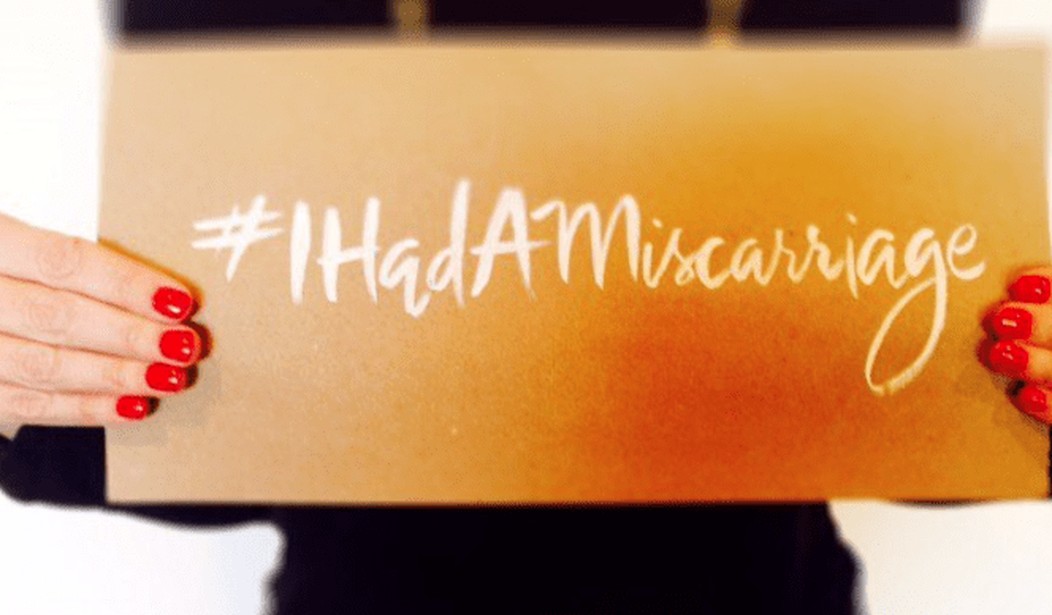“For a while you were real.” If any one sentence could sum up the grief of miscarriage, I think that one is it. It’s from the @ihadamiscarriage Instagram account, where Dr. Jessica Zucker is trying to lift the stigma, and break the taboo, around miscarriage.
According to Self magazine, Zucker is a psychologist who specializes in pregnancy loss and she posts both about her own experience (she suffered a particularly traumatic miscarriage at 16 weeks) and about the experiences of others who share their stories with her. The posts are paired with striking (sometimes NSFW) images and deal with all aspects of the experience of miscarriage. And so many of them (both Zucker’s own thoughts, and those of others) center around the grief of never getting to meet their children.
For me, the most shocking and devastating thing about having a miscarriage was how real my baby felt. My grief was not simply for the experience of becoming a mother that was now put on hold (perhaps indefinitely), but for the person that I’d never get to meet. My baby, regardless of the fact that he’d only been growing inside me for nine weeks, had been a baby. I was sure of it. And it shook me to my very core. Because, if this baby had been a baby (as I was now certain it was), what did it say about all the babies who never got to be born?
This, I think, is the single most important reason why there’s a taboo around miscarriage. This sense, that so many women have, that they lost a daughter or a son (not “an embryo” or “a fetus” or, worst of all “the tissue”) is, to put it mildly, problematic. Because, if we acknowledge the person-ness of wanted pregnancies, what does it say about the person-ness of unwanted ones?
Zucker refers to her own lost baby as Olive, and often imagines the life she might have had if she’d lived. “I imagined a lot. A life. A love. You upside down on the monkey bars. Me clenching my teeth in fear while cheering you on. My fearless girl. My powerful girl.” Olive. And her almost poetic posts often speak directly to her daughter. “How can the late afternoon summer breeze remind me of you when we never even had a chance to experience a moment together, let alone a season?” she writes. “You are loved like nobody’s business, Olive.”
Zucker and other commenters on the site don’t shy away from calling these lost babies “sons” and “daughters” and there is frequent mention of death. Zucker highlights a post from user @thejonesmarket who writes, “I want my son, I want my son, I want my son, my son is dead, my son is dead, my son is dead.” And another from @januaryfeliz who writes of her lost daughter, “I am still learning how to confront and cherish the great painful love I had for her.”
Zucker also speaks candidly about the cause of her miscarriage, explaining that tests done on the baby’s body revealed a chromosomal abnormality that, had she lived, would have had devastating effects. “I took a deep breath for the first time in days,” she writes, about finding out this information. “This news felt reassuring to me and my husband alike.”
https://www.instagram.com/p/BVupoiNgQDJ/?hl=en&taken-by=ihadamiscarriage
It felt that way to me too, when I received similar results about the baby I’d lost. But my doctors were shocked that I’d want these tests performed at all. “This is just your first miscarriage!” the doctor told me. “There’s no need to run tests.” Perhaps not, if what I’d lost was simply “the tissue,” as my doctors referred to it. But I wanted to know how my baby had died.
Zucker is open about the fact that, had she not suffered a miscarriage, she would have terminated her pregnancy upon learning that her daughter had a chromosomal abnormality. And she welcomes women into the the @ihadamiscarriage circle who have opted to terminate their pregnancies for “medical reasons.” This is a thorny issue, and one which poses, perhaps, more of a gray area than the termination of pregnancies simply because they are unwanted. But Zucker certainly does not seem to welcome women who have chosen to do that.
Whether or not you agree with Zucker’s opinions on the termination of wanted pregnancies, it seems fairly clear to me that this Instagram account is doing what few other sites are doing. It’s allowing grieving mothers to speak of the children they’ve lost. It’s giving them permission to say that these children were children, and validating their grief. This, with all the messy inferences that must be drawn from it, is the only way to truly end the taboo around miscarriage.









Join the conversation as a VIP Member